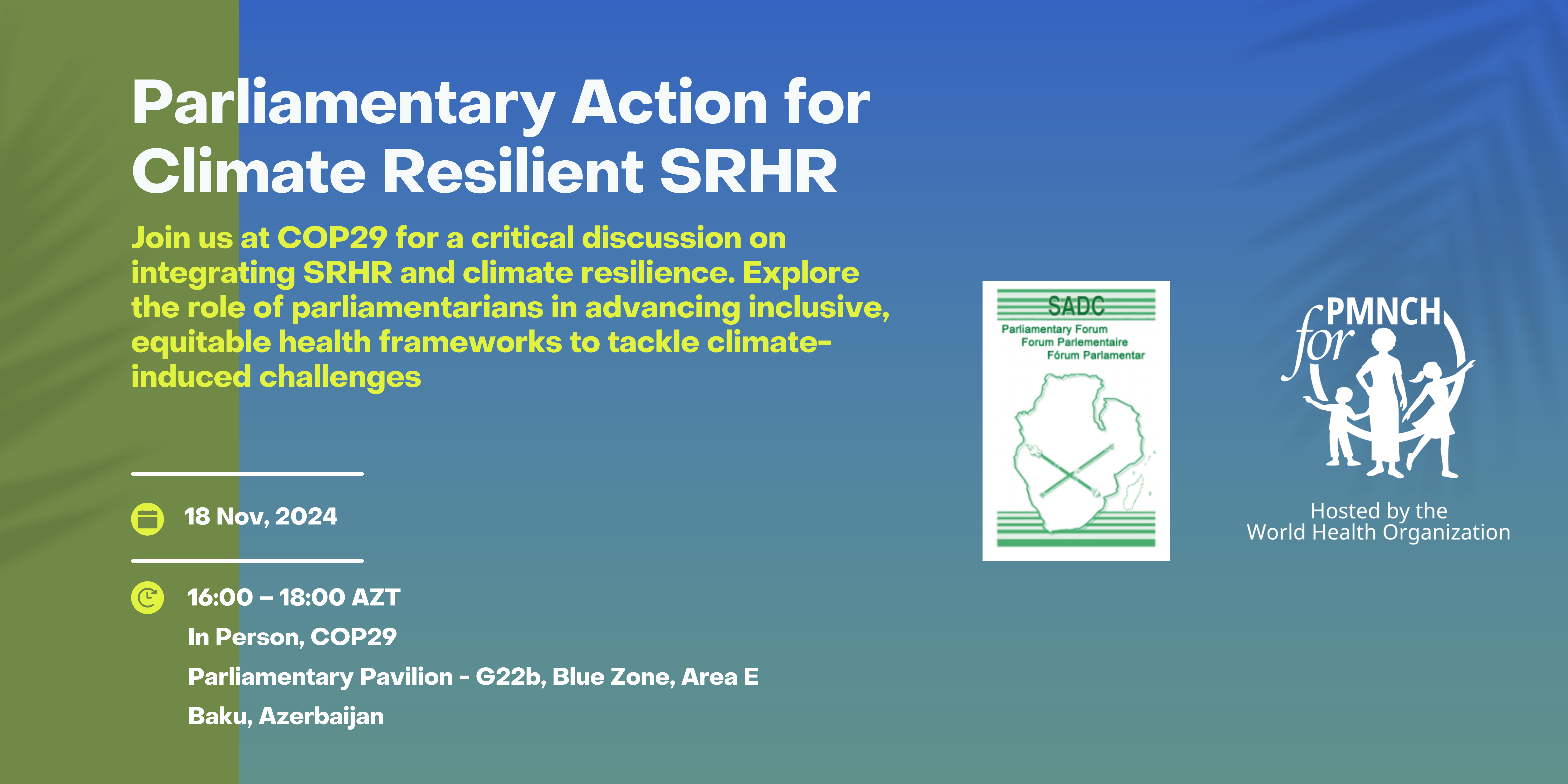
Climate change and gender equality are closely linked, with SRHR being a cornerstone of both health and gender equality. Climate change disproportionately affects women and vulnerable groups, exacerbating inequalities in health access, safety, and rights. Gender-responsive climate governance that includes diverse perspectives is crucial for effective, equitable outcomes. Failure to integrate gender considerations into climate policies can hinder progress across health, human rights, security, and sustainable development.
Parliaments are central to upholding these rights and in ensuring that climate change interventions are inclusive and responsive to gender and SRHR. Health Day at COP29 presents an opportunity for parliaments to spotlight and interrogate the intersection of climate change and SRHR, highlighting the necessity for gender-responsive interventions.
The session aims to gather Members of Parliament, Parliamentary SRHR researchers, health experts, climate advocates, and development partners to explore innovative ways to integrate SRHR into climate policies, leveraging parliamentarians’ legislative and oversight roles to support inclusive frameworks.

.png?sfvrsn=6d0e27cd_1)



